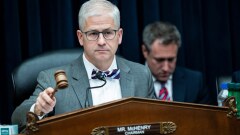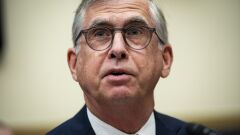At the end of last year, American Banker's journalists assembled a list of the
See who we think are the
At the end of last year, American Banker's journalists assembled a list of the
See who we think are the
























As tariff turbulence continues, BofA is predicting a slowdown, not a downturn. But America's second-largest bank is also signaling that it's prepared for a more severe scenario.
The Office of the Comptroller of the Currency says it's still reviewing compromised emails and attachments after hackers gained access to the regulator for over a year and has not ruled out exposure of customer or supervisory data.
New York AG Letitia James is suing the earned wage access companies for charging illegal, high-interest loans that would have wide-ranging implications for EWA providers. DailyPay last week filed a countersuit against James's office.
CEO Jane Fraser said Tuesday that the bank is positioned well to handle shakiness in the global market, and is still working on its years-long overhaul.
A report from Galaxy, which builds crypto lending platforms, shows borrowers are trusting decentralized players after a centralized platform collapsed in 2022.
A federal judge in Texas found that the Consumer Financial Protection Bureau had violated the CARD Act by barring banks from charging late fees for credit cards.